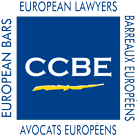(LUXEMBOURG) – Intel’s appeal against the imposition by the EU of a EUR 1.06 billion fine for abuse of its dominant position should be referred back to the European Court of Justice, its Advocate General said on Thursday.
In May 2009 the European Commission imposed a fine of EUR 1.06 billion on the US-based microchip manufacturer for abusing its dominant position on the market for x86 CPUs (central processing units), in infringement of EU antitrust rules.
In addition, the EU executive ordered Intel immediately to bring an end to that infringement in so far as it had not done so already. Intel, it said, had abused its dominant position on the worldwide market for x86 CPUs from October 2002 to December 2007, by implementing a strategy aimed at foreclosing a competitor, Advanced Micro Devices Inc. (AMD), from the market.
As Intel held a market share of roughly 70 per cent or more, it was extremely difficult for competitors to enter the market, said the Commission, and to expand as a result of the unrecoverable nature of investments to be made in research and development, intellectual property and production facilities.
According to the Commission, the abuse was characterised by several measures adopted by Intel vis-a-vis its own customers (computer manufacturers) and the European retailer of microelectronic devices, Media-Saturn-Holding.
Accordingly, Intel granted rebates to four major computer manufacturers (Dell, Lenovo, HP and NEC) on the condition that they purchased from Intel all, or almost all, of their x86 CPUs. Similarly, Intel awarded payments to Media-Saturn, which were conditioned on the latter selling exclusively computers containing Intel’s x86 CPUs. According to the Commission, those rebates and payments induced the loyalty of the four manufacturers listed above and of Media-Saturn, and thus significantly diminished the ability of Intel?s competitors to compete on the merits of their x86 CPUs. Intel’s anti-competitive conduct thereby resulted in a reduction of consumer choice and in lower incentives to innovate.
On the basis of the 2006 Guidelines, the Commission imposed a fine on Intel of EUR 1.06 billion. Intel brought an action against the Commission’s decision before the General Court, seeking the annulment of that decision or, at least, a substantial reduction of the fine.
The EU’s General Court had dismissed Intel’s action in its entirety in 2014. But Intel appealed on several points, including the nature of ‘exclusivity rebates’, the assessment of market coverage, the interpretation of EU law and the amount of the fine.
Advocate General Nils Wahl notes in today’s opinion that the General Court found that the rebates granted to Dell, HP, NEC and Lenovo are ‘exclusivity rebates’ and, because of this classification, did not consider it necessary to consider the capability of such a rebate to restrict competition.
The Advocate General concluded that the General Court erred in finding that ‘exclusivity rebates’ constitute a separate and unique category of rebates that require no consideration of all the circumstances in order to establish an abuse of dominant position.
In addition, he determined that the General Court erred in law in its alternative assessment of capability by failing to establish, on the basis of all the circumstances, that the rebates and payments offered by the appellant had, in all likelihood, an anti-competitive foreclosure effect.
The Advocate General also upheld the second ground of appeal,concluding that Intel’s market share was inconclusive for the purposes of establishing a restriction of competition.
The Advocate General reiterated his view that no separate category of ‘exclusivity rebates’ existed, on the basis that ‘exclusivity rebates’ would be conditional upon the customer purchasing ?all or most? of its requirements from the dominant undertaking, which is not satisfied in the circumstances of this case. HP and Lenovo could still purchase significant quantities of 86 CPUs from AMD.
He also concluded that EU legislation requires the Commission to record interviews to ensure that undertakings suspected of infringing EU competition rules can organise their defence, and that the EU courts can review whether the Commission exercised its powers within the law. Consequently, in his view, the General Court erred in law in holding that the Commission was not in breach of EU law by failing to organise and record a meeting as required under the applicable rules. In fact, the Advocate General does not agree that such a procedural irregularity could be remedied by the later note to file provided by the Commission since that note does not record the substance of the interview that the Commission had with the Dell executive. The Advocate General therefore considers that the fourth ground of appeal must also be upheld.
Regarding the fine imposed, the Advocate General considers that the fact that the fine imposed was record-breaking at the time does not in itself make it disproportionate and Intel has failed to point to any legal error committed by the General Court which would permit the Court to assess the proportionality of the fine.
As regards the retroactive application of the Commission?s 2006 fining guidelines to conduct that partially predated them, the Advocate General considers that it is EU legislation which defines the limits of the Commission?s discretion in imposing a fine for the infringement of EU competition rules, not the fining guidelines. Provided that the fine imposed remains within the limits of that legislation, Intel cannot rely on the principle of non-retroactivity to contest the fine imposed.
So the judgment of the General Court should be set aside, said the Advocate General, and the case referred back for the General Court.
While the Advocate General’s Opinion is not binding on the Court of Justice, it is rarely overturned.
Advocate General’s Opinion in Case C-413/14 P – Intel Corporation Inc. v Commission








